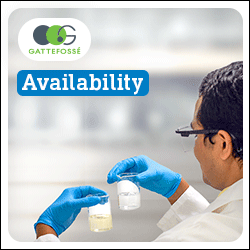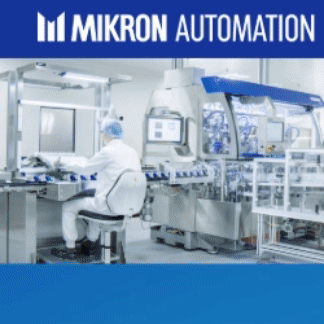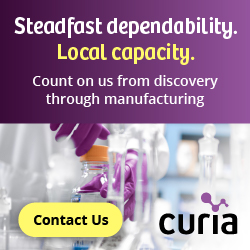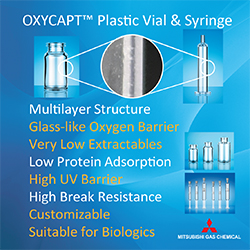NeuBase Announces Positive Preclinical Data Supporting the Capabilities of Stealth Editors
NeuBase Therapeutics, Inc. recently announced a broad set of preclinical safety and efficiency data for its Stealth Editors development program that demonstrate the ability to achieve gene editing with a non-immunogenic system.
These preclinical data were featured in an oral presentation by Dr. Dani Stoltzfus, Vice President of Research at NeuBase, titled Nuclease-Free Gene Editing with Peptide Nucleic Acids: A New Class of In Vivo Gene Editors, at the ASGCT 2023 Annual Meeting.
“We are excited to announce preclinical data from our Stealth Editors development program that were presented during the ASGCT 2023 Annual Meeting. These data support our novel in vivo gene editing approach that allows us to tag a locus in the genome that harbors a mutation with a simple synthetic compound and recruit the cell’s own machinery to repair the mutation. This high-fidelity non-immunogenic approach is expected to offer advantages compared to modified bacterial CRISPR/Cas enzymes for in vivo gene editing applications from a safety and durability of effect perspective,” said Dietrich A. Stephan, PhD, Founder and Chief Executive Officer of NeuBase. “We continue to rapidly advance the development of our Stealth Editors platform, which we believe has the potential to generate best-in-class, next-generation therapies capable of addressing diverse types of high-value genetic mutations. Throughout the remainder of 2023, we expect to announce additional preclinical data from several ongoing and planned studies in non-human primates and mice. Taken together, these data indicate that our novel synthetic gene editing technology is promising and can be encapsulated into delivery technologies that have delivered payloads to patients in the marketplace with known performance characteristics, enabling us to have a risk-off stance to delivery. Furthermore, the data presented at the ASGCT 2023 Annual Meeting illustrates that we can edit genes, the non-immunogenic nature of our editing system, and the exquisite fidelity of human DNA repair enzymes, all of which are the essential ingredients for a winning in vivo editing solution.”
Overview of Preclinical Studies and Results Presented at ASGCT 2023 Annual Meeting
Ex vivo editing with Stealth Editors – The company investigated the capabilities of a new editing system to effectively edit human cells ex vivo. The editing system is comprised of two synthetic reagents: a modified peptide nucleic acid and an oligonucleotide donor molecule. Human cells were modified to contain a fluorometric reporter system that allows rapid and real-time colorimetric readout of correction of a frameshift mutation in the genome. The result of the studies showed a dose-dependent increase in correction of the gene mutation based on expression of the newly functional fluorescent protein compared with various controls, highlighting a titratable increase in efficiency with which the Stealth Editors can engage the genome to harness the cell’s own machinery to correct the mutation. The company has made strides toward increasing editing efficiency over the past months and believes efficiency will continue to increase with technical improvements. This ex vivo fluorometric system is rapidly modifiable to include any gene editing target of interest and allow rapid screening against diverse targets to identify hits, supporting both the company’s emerging in-house pipeline of therapeutic programs, which the company plans to announce later this year, as well as potential research partnerships.
Proven Non-Immunogenic profile in human peripheral blood mononuclear cells (PBMCs) – The company demonstrated the stealth nature of its editing solution with PBMCs from multiple donors treated with either known immunostimulants or Stealth Editors packaged inside a lipid nanoparticle. The results of this study show PBMCs treated with a Stealth Editor did not impact cell viability. In addition, there was no cellular immune response for the Stealth Editor-treated cells compared with the control (PBS) across the five cytokines measured, in direct juxtaposition to the positive controls, which elicited a strong cytokine response. The conclusion from these data is that Stealth Editors do not elicit innate immune responses in the encapsulated format in which they would be administered systemically, and the company believes this is likely to be an important differentiator of its technology when transitioned to in vivo gene editing.
Delivered via Non-Immunogenic Delivery Technology – Using clinically-validated technology, the company has generated Stealth Editor lipid nanoparticles (LNP) where the hydrodynamic diameter is approximately 70 nm, and the polydispersity index is <0.1. Furthermore, the company’s drug product has a physiologically acceptable pH of 7.3 and an osmolality in the range of 300. These data demonstrate that NeuBase has overcome the challenge of how to encapsulate Stealth Editors and sets the stage to move this program into in vivo studies.
Myotonic Dystrophy Type 1 (DM1) Program Data at ASGCT 2023 Annual Meeting
In addition, during the ASGCT 2023 Annual Meeting, the Company presented data from its Myotonic Dystrophy Type 1 (DM1) program in an oral presentation titled, Toxicology, Pharmacokinetics and Biodistribution of a PATrOL™-Enabled Investigational Genetic Therapy for Myotonic Dystrophy, Type 1. The slide presentations for the Stealth Editors™ and DM1 data updates at the ASGCT 2023 Annual Meeting will be made available on the Publications and Presentations section of the NeuBase website (click here).
NeuBase is a preclinical stage biopharmaceutical company leveraging its peptide-nucleic acid technology to accelerate the genome editing revolution. NeuBase’s Stealth Editing technology is a new type of gene editing designed to avoid being identified by the immune system and provide pronounced effects that are safe, delivered with non-viral technologies, and broadly applicable across different mutation types and industries. This in vivo gene editing system seeks to address disease at the base level by recruiting the body’s own editing machinery to correct mutations that cause disease. The company projects that its technology can potentially address up to ~90% of all known human mutations, including insertions, deletions, transitions, and transversions with a simple non-immunogenic solution. For more information, visit www.neubasetherapeutics.com.
Total Page Views: 757













